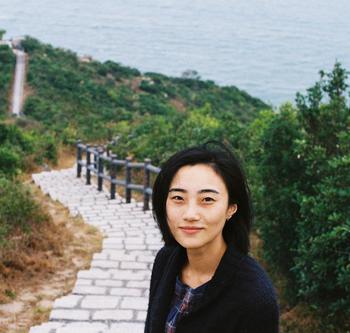Dr. Zimu Zhang

Fellow in the project "Epochal Lifeworlds: Narratives of Crisis and Change“ (June 2025 - July 2025)
Short Biography
Zimu Zhang is an environmental humanities scholar working on visual culture, eco-cinema and ecofeminist arts. She is an Assistant Professor at the Department of Literature and Cultural Studies, The Education University of Hong Kong. She is the recipient of the 2022 Landhaus fellowship at the Rachel Carson Center for Environment and Society, LMU and 2023 VisitANTS fellowship in Critical Studies of Biodiversity and the Anthropocene Research at University of Oulu, Finland. Her current research projects focus on hydrosociality of the creative arts and cultural narratives from the Southern China waterscape, delta and archipelagos. Along with her academic research, Zimu also practices filmmaking and curation
Project
Tracing, Sensing and Caring: Pollen Allergy as an Eco Event in Contemporary ChinaPollen allergy, commonly known as hay fever, was once infamously dubbed the “malady of civilization” (Mitman 2008, 4) in 19th century Europe and North America, serving as a peculiar marker of urban modernity and elite class. Today, however, this myth has evolved into a global public health crisis, with up to 40% of the world’s population suffering from all kinds of chronic allergic conditions and pollen being one of the most significant triggers (Oh 2022; World Allergy Organization 2013). In China, particularly in the north where allergenics plants like artemisia and poplar trees are widespread, pollen allergies account for over 50% of annual allergy cases, posing a severe public health challenge (Li et al., 2024). As researchers have shown, allergies are not merely pathological, but intrinsically linked to urbanization, industrialization, modern lifestyles, and the pressing global climate change, which intensify pollen production and prolong distribution seasons, exacerbating allergic sensitivity (Jensen and Barry 2023; Mitman 2008; Oh 2022). While most academic and public discourses focus on medical evidence, effective treatments, and urban planning, I argue that pollen allergy must also be understood as a cultural phenomenon—a co-constitution of contemporary life under plant-human entanglement and co-dependency (Galiano et al., 2017). Through the lens of critical plant studies and environmental humanities, pollen allergy emerges as a material and cultural eco-event, revealing tensions in urban aesthetic, health norms, technological control, and the urban-rural divide.
Employing an interdisciplinary approach that bridges plant humanities, medical humanities, environment history, and creative arts, I plan to unpack this complex issue across three work packages: Tracing, Sensing and Caring.
• Tracing: Investigates the environmental and medical history of China’s socialist period (1950s–1980s), exploring how allergenic plant landscapes emerged from nationwide monocrop planting and anti-desertification campaigns, alongside the development of China’s allergy medical discourse.
• Sensing: Analyzes creative narratives (literature, art, popular culture) to uncover how pollen allergy is inscribed in multisensory registers, challenging urban aesthetics, health norms, and techno-political control of nature.
• Caring: Collaborates with eco-artists and scholars to co-curate public workshops and socially engaged art projects, fostering community engagement and care ethics around environmental justice, health politics, and multispecies coexistence.
During the fellowship, I will mainly work on literature research and theoretical discussion of the first two work packages.
References:
Damialis, Athanasios, Claudia Traidl-Hoffmann, and Regina Treudler. 2019. “Climate Change and Pollen Allergies.” Biodiversity and Health in the Face of Climate Change, 47–66.
Gagliano, Monica, John C. Ryan, and Patrícia Vieira. 2017. The Language of Plants: Science, Philosophy, Literature. U of Minnesota Press.
Jensen, Martin Trandberg, and Kaya Barry. 2023. “Following Pollen Mobilities.” In Researching with Proximity: Relational Methodologies for the Anthropocene, 119–30. Springer Nature Switzerland Cham.
Li, Aoli, Zhifeng Huang, Qingyuan Ye, Xianhui Zheng, Jiale Zhang, Tong Chen, Wenting Luo, and Baoqing Sun. 2024. “Profile of Cross-Reactivity to Common Pollen Allergens in Northwest China Based on Component Resolved Diagnosis.” Scientific Reports 14 (1): 24446. https://doi.org/10.1038/s41598-024-73465-x.
Oh, Jae-Won. 2022. “Pollen Allergy in a Changing Planetary Environment.” Allergy, Asthma & Immunology Research 14 (2): 168–81. https://doi.org/10.4168/aair.2022.14.2.168.
World Allergy Organization. 2013. “The WAO White Book on Allergy (Update 2013).” https://allergypaais.org/wp-content/themes/twentytwentyone/pdf/ExecSummary-2013-v6-hires.pdf.
